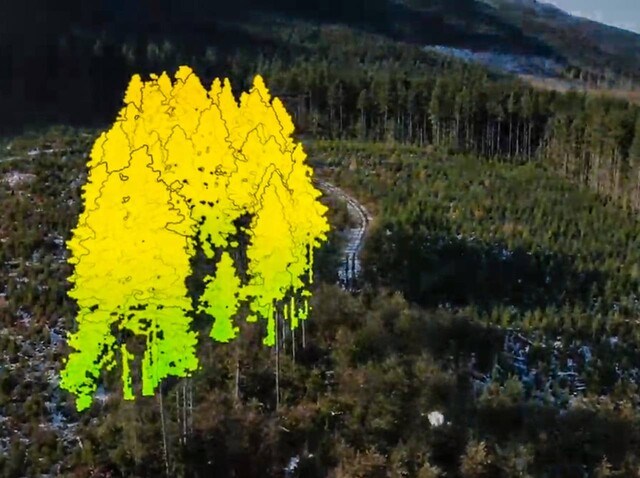A Kelowna-based startup is seeking to inject artificial intelligence into the forestry sector as B.C. comes out of one of its worst fire seasons ever.
Genesis AI Corp. is building systems that will create a “digital twin” of a forest that could have wide applications in the industry ranging from fire mitigation to silviculture or timber development.
“If you have a digital twin of a forest, you're able to model different outcomes,” said Genesis AI project director Brent Tolmie.
Tolmie is also the CEO of Carbonethic, a firm that sought to provide transparency in the carbon offset sector with predictive modelling through a system called Woodlands.ai.
Carbonethic was purchased by Genesis AI earlier this year with the realization that Woodlands.ai could have more applications in the broader forestry sector.
The company is deploying digital sensing technology, drones with LiDAR, photogrammetry, orthographic photography and melding it into 3D models of actual forests.
Tolmie said their program will eventually be able to model the impact of wildfires so agencies know where to focus mitigation efforts.
“So that we can apply scarce FireSmart dollars to maximize the performance,” he said, noting the company is also working on developing sensors that could be deployed once a fire starts that could help gather data to predict its movements.
In silviculture or reforestation, foresters currently plant sites based on best practices and known techniques.
“What if you were able to model the growth of those trees to understand when they were going to achieve free-to-grow status?” Tolmie said. “Are there different applications or perhaps different patterns that you can employ to achieve a better outcome?”
Tolmie said the company is training its systems on data sets that are between 100 and 1,000 hectares of forest, “to really understand what's there on a very finite basis, and then to be able to contrast and compare that to what's known about larger-scale forests.”
Access to affordable cloud-based AI supercomputers to process vast amounts of data affordably has been a “game changer” for the company.
“We're able to process more data faster, and perhaps better than we ever have, at a lower cost of compute.”
Genesis AI Corp. is aiming to have a commercially-viable product on offer in the first quarter of 2024.
Tolmie says it will likely initially be aimed at forestry companies, most of which rely on relatively low-tech solutions to measure the volume and quality of timber before harvest, a process known as timber cruising.
“We feel that we'll be able to do that with a higher accuracy rate at a lower cost,” he said.
Genesis AI Corp. is currently trading on the Canadian Securities Exchange for around 20 cents a share.



